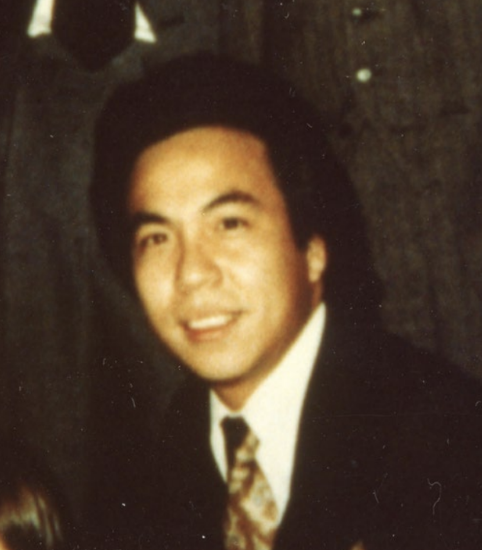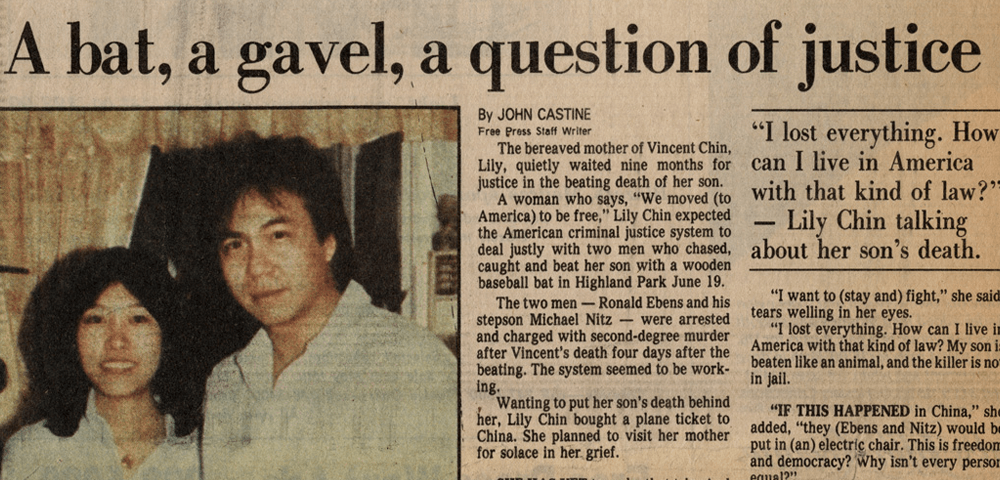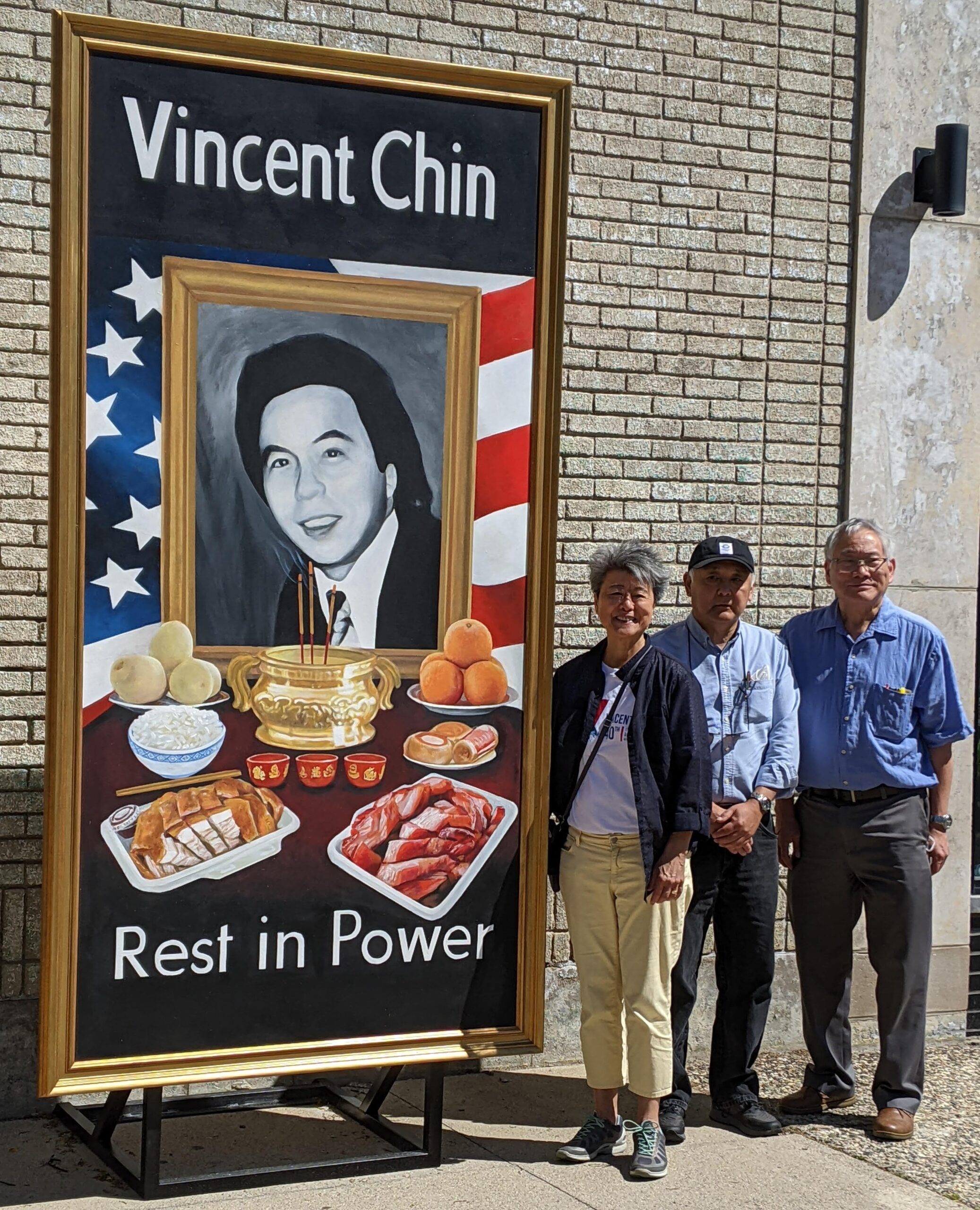History of ACJ
Who was Vincent Chin?
On June 19, 1982, Vincent Chin was beaten with a baseball bat. Vincent died four days later, on June 23, 1982. At the time, the American Auto Industry was in a crushing recession and much of the hostility was directed at Japan and Japanese auto imports. Chin was a 27-year-old Chinese American who was celebrating his bachelor’s party in Detroit. On the night of the murder, he was visiting the Fancy Pants strip club with his friends. Ronald Ebens and his stepson Michael Nitz, two white auto workers, began to harass Vincent with racial epithets and a fight broke out. That’s when dancer Racine Colwell overheard Ebens say,
“It’s because of you m*ther f*ckers we’re out of work!”
— Ronald Ebens, 1982

When the men were thrown out of the bar, Ebens and Nitz retrieved a baseball bat from their car and Vincent Chin ran away. After a half-hour pursuit, the men surprised Vincent in a parking lot. Nitz held Vincent down while Ebens beat his head four times with the bat. The impact cracked Vincent’s skull and he died four days later in the hospital.
On March 18, 1983, Ronald Ebens and Michael Nitz pleaded guilty to killing Vincent Chin. Judge Charles Kaufman sentenced them to 3 years probation and fined them $3,780. Explaining the light sentence, Judge Kaufman stated, “These arent’ the kind of men you send to jail. You fit the punishment to the criminal, not the crime.” Neither man spent a single day in jail for beating Vincent Chin to death.
“These aren’t the kind of men you send to jail. You fit the punishment to the criminal, not the crime.”
— Judge Charles Kaufman, Wayne County Circuit Court


Photo by Victor J. Yang
Why do we remember Vincent Chin?
Although it was over 40 years ago, Vincent Chin’s death was a landmark in the history of the Asian American community. His death and the activism that followed:

40th Commemoration team at the Rest In Power mural: Helen Zia, James Shimoura, Roland Hwang. (Photo by Roland Hwang)
- Underscores the importance of multiracial coalitions
- Initiated the APA Victims and Civil Rights movements
- Allowed families to testify during sentencing
- Helped create mandatory minimum sentencing guidelines
- Created understanding of the danger of changing venues in trial
- Allowed hate crimes against Asian Americans to be prosecuted at the federal level
- Emphasized the importance of education and awareness in preventing hate crimes
- Helped form American Citizens for Justice in 1983
